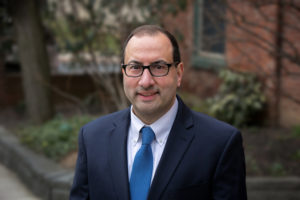The following article by Nikolaus & Hohenadel attorney, Frank J. Macciocca, is reprinted here with permission from the Lancaster Bar Association’s In Brief magazine. The article originally appeared in the magazine’s Fall 2018 edition. 
Limited Work-Product Discovery Protections in Pennsylvania for Attorney Litigators Using Non-Testifying Financial Experts and Investigators
By: Frank J. Macciocca
On June 7, 2018 the Superior Court of Pennsylvania ruled in McIlmail v. Archdiocese of Philadelphia that the notes and memoranda of witness interviews by a private investigator, acting at the express direction of counsel, were deemed discoverable and unprotected by the work-product doctrine.[1] The effect of this ruling appears to further drive the wedge between attorney and non-attorney work with regard to discoverability under Pennsylvania Rule of Civil Procedure No. 4003.3, as codified by 231 Pa. Code § 4003.3. Methods of litigation preparation using financial expert activities may have to change for litigators hiring forensic accountants and fraud examiners for complex cases.
In McIlmail a unanimous three-judge Superior Court panel ruled that, since witness interviews were not conducted by an attorney, only the impressions or evaluations of the investigator were barred from production in discovery, unlike the broader protection granted to attorneys under the work-product doctrine in Rule 4003.3.
The subject matter of this case is the defense by the Archdiocese of Philadelphia of Monsignor William Lynn and Father Robert Brennan against sexual abuse allegations. This decision affirmed an order from the Philadelphia Court of Common Pleas. Defense counsel for the Archdiocese had retained a private investigator firm to conduct interviews with potential witnesses that had been identified previously by defense counsel.
As a result of this case, should we ponder the implications of this ruling for litigation counsel who hire forensic accountants and fraud examiners to perform work as non-testifying experts in complex civil litigation matters?
It may be time. Would it help to hire an attorney with forensic accounting and fraud examination competencies to compliment the work of forensic accountants and fraud examiners on the litigation team as a workable solution? Rather than using a forensic accountant or fraud examiner, such an attorney can perform, for example, interviews of accounting and finance personnel at a business organization being sued for money damages. This may provide a broader range of protection from discovery of these interviews by the opposing party and its counsel.
To further illustrate, it may work best to close this gap by hiring this kind of attorney to interview bookkeepers of a company being sued for misappropriation of assets, corruption, and/or financial statement fraud. Specifically, if the fraud relates to inflated and fictitious accounts receivable that was provided to a lender in a loan application and the loan was provided to a borrower company that later collapsed in scandal, then, according to McIlmail, a forensic accountant from a CPA firm hired by and working under the express direction of litigation counsel must now hand over in discovery memoranda or notes made during the forensic accounting and fraud examination work. In contrast, if an attorney hired as part of the defense team with the requisite competence and trained in these forensic accounting and fraud examination techniques performs this very same litigation support work, then there is no such work-product leakage risk to the litigation team.
As Judge Panella writes in McIlmail, “Our Supreme Court set a high bar of protection in relation to the discovery of the work product of an attorney which may not include disclosure of the mental impressions, conclusions, opinions, memoranda, notes, legal research or legal theories of an attorney. On the other hand, as to materials produced by any other representative of a party [i.e. including a forensic accountant or a fraud examiner], the rule only prohibits the disclosure of the representative’s [forensic accountant or fraud examiner] mental impressions, conclusions, or opinions respecting the value or merit of a claim or defense or respecting strategy or tactics. Memoranda or notes made by the representative are not protected.” Since it seems clear now that these memoranda and notes are subject to discovery, why take this chance in occupational fraud cases or business failure cases if it can be avoided?
Seemingly, in Pennsylvania, the full breadth of confidentiality, work-product, and privilege may be better preserved through a complimentary addition to the litigation team of an attorney specialist competent in forensic accounting and fraud examination tools and techniques. This step preserves and protects information, otherwise discoverable, that may end up being the difference between a favorable outcome for the client rather than an unfavorable result whether during settlement negotiations or at trial.
Harkening back to Hickman v. Taylor, 329 U.S. 495 (1947), where a unanimous Supreme Court of the United States concerned itself with protecting documents obtained or prepared by counsel in anticipation of litigation, post-McIlmail, litigators in Pennsylvania may want to reconsider the extent to which they use non-attorney financial investigators.
[1] McIlmail v. Archdiocese of Philadelphia, 2018 Pa. Super. 157 (June 7, 2018).
 Frank J. Macciocca is an associate at Nikolaus & Hohenadel, LLP specializing in taxation, commercial transactions, complex litigation, forensic accounting, fraud investigations, corporate compliance, and risk management.
Frank J. Macciocca is an associate at Nikolaus & Hohenadel, LLP specializing in taxation, commercial transactions, complex litigation, forensic accounting, fraud investigations, corporate compliance, and risk management.

